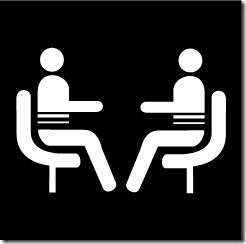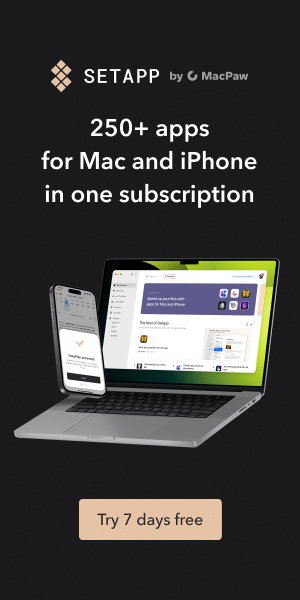I recently had an interesting conversation with an ex-coworker around the process of getting hired. What was fascinating was that we both had the same thoughts, his as a result of some advice from a career coach and mine from some introspection. What it all converged on was that there is a big difference between simply applying for a job, and selling yourself as an asset to a company looking to hire. You should do both — don’t just stop at the application.
It is important when you are looking for a job to understand what exactly you want. Are you looking to simply get a paycheck? Or is your desire to move your career forward? Remember though, those hiring managers are pretty smart and many of them can sense if you are being self-centered in your job search process. Of course, you want to have a winning situation, but as part of the process, you need to be sure that the hiring manager and the company feel that it is a win for them as well. This is where you need to really decide if you are simply applying for a job to pay the bills or if you are “selling yourself” as a valuable asset to the hiring company (and accomplishing your career goals in the process).
Let’s take a look at these two approaches.
Applying for a Job
If you are early on in your career, simply applying for a job might be exactly what you need to do. Depending on the field or industry you are approaching, there may simply be a lack of jobs in the marketplace. If this is true, you have your work cut out for you. You will have to strive to differentiate yourself from the competition (and you may want to read the next section, “selling yourself”).
Most likely, you have an idea of what you desire and you know what your qualifications are and what you can or cannot do in terms of skills. I believe it is okay to push the envelope a bit when looking to see if you check off all of the requirements. If you are a bit rusty at a certain skill, you can teach it to yourself. The Internet is a vast repository of educational and training resources, packed with plenty of people who can (and will) help you if you have questions.
Look at the job and try to visualize yourself doing it. If you don’t feel comfortable at all, move on to the next one. If you feel courageous, get that resume in! There is nothing wrong with trying, in fact, the more that you do it, the better of a chance you have to get the job or at least an interview.
The interview process is actually what I consider much more important than a resume. A well-crafted, informative and clean resume acts to open doors. Again, if you are early on in your career, focus on your strengths and highlight accomplishments that you are particularly proud of. But don’t consider the resume as a stand-alone document. It is the written representation of who you are and what you have done. It is not (yet) an interactive version of you. Someone may have helped you craft the perfect resume, but that same person will not be in the room with you answering questions during an interview.
It is CRITICAL that you tell a consistent story in your resume AND in the subsequent interviews.
And I want to highlight the word “story” here because that is where you transform from simply applying for a job to selling yourself.
Selling Yourself
Whether they like to believe it or not, hiring managers often do not have a clear idea of what they are looking for in a job applicant. Sure, they have a job description which may or may not describe the skills and qualifications of a person that they would like to have. But often, they actually need some help in differentiating between all of the applicants they are screening and defining the true job itself.
This is your chance to shine. First, be sure to do your research of the company, the hiring manager and the core executives of the company. Just showing that you understand the space that the company is in, what the company does, who their target customers and competitors are and why the employees are so great will put you ahead of other applicants.
But before you head into the interview, figure out your story – that is to say, understand how to raise yourself above the crowd. And, as I mentioned before, be sure that your story is consistent with your resume. If you say one thing on your resume, make sure that you back it up during your interview. Just as companies sell products, you need to pitch and sell yourself and why the company or hiring manager should “buy” you.
I have actually been in some situations where I created or modified the job description to better match my skill set and expertise. This is where you sell yourself. Depending on the company and the hiring manager, you may have some flexibility in your exact position. This is tricky though, but if you architect it properly, you can create a position that you know that you can do better and that you are excited to do.
Prior to the interview, find a few points in the job description that you know you can do extremely well or even better than described. Be sure that you have some tangible work examples that you can use to back up your claims. Then, when the opportunity presents itself, ask the hiring manager about the particular point and SHOW them how you blow that particular requirement out of the water! You can even say “wouldn’t you want someone who does XYZ and ABC instead of just ABC?”
This is where you move well beyond just applying for a job. You have already checked off the boxes – now you are adding some zing to those check marks. Think of this as the difference between Yes/No and open-ended questions. “Do you want this job?” and “Do you have this particular skill?” versus “Tell me why you would be the best fit for this job” and “What do you consider to be your strongest skill and why?” Selling yourself means you answer the open-ended questions without (or before) being asked.
Closing the Deal
The interview is really the make or break point of the entire job process. I personally enjoy interviews tremendously. They are dynamic, sometimes unpredictable and should keep you on your toes and even learn things about yourself that you didn’t know before. Not only can the hiring manager begin to visualize how you might fit in and help the company, you can do the same. If anything makes you uncomfortable, figure it out through follow up questions or further research. If you felt that you left something out, follow up the interview with a thank-you email with some clarifications or additional questions.
Remember though, stick to your story on why you would help the company succeed through your unique skill set. You need to market yourself and not simply answer questions. By marketing yourself, you tell your story.
What tactics do you employ when you apply for a job? How do you sell yourself? What do you find effective or not? Be sure to leave a comment for others to learn.
HTD says: Don’t just apply for a job, apply for your next success by selling yourself!






